Do the Nobel prizes do more harm than good?
The awards 'draw their share of flak' and can lead to 'scientific error', argue critics
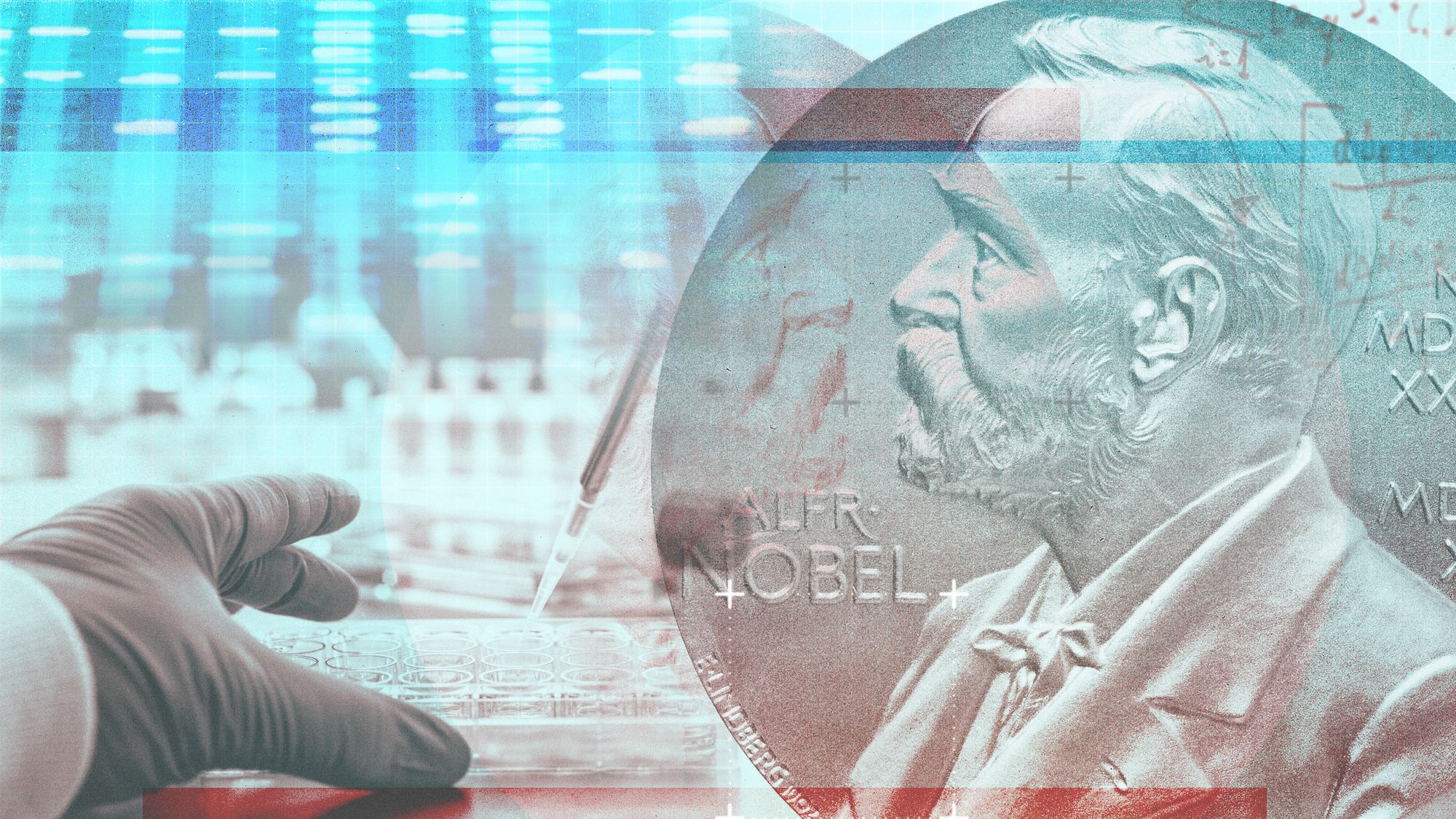
A free daily email with the biggest news stories of the day – and the best features from TheWeek.com
You are now subscribed
Your newsletter sign-up was successful
The jailed Iranian women's rights activist Narges Mohammadi has won the 2023 Nobel Peace Prize.
The Nobel committee said Mohammadi received the prize for her fight against the oppression of women in Iran and her efforts for promoting human rights and freedom for all.
Her win comes after the Nobel Prize in physiology or medicine was awarded to Katalin Kariko and Drew Weissman, who developed the technology that led to the mRNA Covid vaccines.
The Week
Escape your echo chamber. Get the facts behind the news, plus analysis from multiple perspectives.

Sign up for The Week's Free Newsletters
From our morning news briefing to a weekly Good News Newsletter, get the best of The Week delivered directly to your inbox.
From our morning news briefing to a weekly Good News Newsletter, get the best of The Week delivered directly to your inbox.
These are "some of humanity’s highest-profile international prizes" and they "celebrate some of the greatest human achievements in science", said Vox. "But the Nobels are also far from perfect."
What did the papers say?
In addition to the "huge publicity", the prizes "also draw their share of flak, sometimes triggering controversy and resentment over who gets chosen and who is left out", said CNN.
Martin Rees, the British physicist and former president of the Royal Society, told the broadcaster that "one challenge for the Nobel committees is the increasingly collaborative nature of most scientific research. The image of the lone genius having a eureka moment is long gone, if it ever truly existed."
"Science in real life is built on teamwork," agreed Devang Mehta, a synthetic biologist at the University of Alberta, on the Unexplainable podcast. In 2017, the prize in physics went to researchers of gravitational waves, he recalled, but "the actual endeavor to discover the gravitational waves required a lot of infrastructure – thousands of people". But "the prize went to three people".
A free daily email with the biggest news stories of the day – and the best features from TheWeek.com
The cosmologist Brian Keating believes "the mere existence of the Nobel Prize can distort the science" that experts "pursue", said Vox. Keating argued that his team made an "embarrassing error" because they "rushed to publish a little too quickly", partly because of the "potential of being connected to a Nobel".
In an article for Time last year, Rees argued that "because of their special prominence and prestige", Nobel winners’ opinions are "sought by the press, and accorded disproportionate respect", so "some of the greatest among [them] become an embarrassment if given a public platform".
The Nobel Peace Prize can often "stir controversy", said Al Jazeera, because the selection process has "at times been marred by accusations of sexism, racism and the award committee being Eurocentric". So far, 109 individuals have won the peace award but only 18 were women, and there was criticism when the former US secretary of state Henry Kissinger received it, despite being accused of "several war crimes", including bombings in Cambodia.
Does all this controversy mean the entire process is more hassle than it's worth? Nobel Prize announcements have become "our own little nerd Super Bowl", wrote C. Brandon Ogbunu for Scientific American, an "Academy Awards for the pocket-protector crowd". But criticisms of the Nobel prizes "continue to miss the mark", he argued, and are often "obscured by scapegoating, moral superiority, and public posturing".
What next?
So what can be done? "If the Nobels have to go on," said Mehta, "they need to radically change." He suggested a prize that is "more international" and "that acknowledged work from a broader range of countries". He also suggested Nobels "going to discoveries", so that you have a Nobel Prize for the "invention of the mRNA vaccine without actually saying who made that discovery".
We need "more and better ways of encouraging discovery and innovation by the world's scientific community", said Rees. "One such example is challenge prizes," he added, "which don't reward past success, but incentivise future efforts to tackle an important problem."
"In the meantime", wrote Ogbunu, "I can draw inspiration from the lives of Nobel laureates", because they contain "thrilling tales of discovery, and lessons about creativity and resilience. The winners will be okay," he said.
Chas Newkey-Burden has been part of The Week Digital team for more than a decade and a journalist for 25 years, starting out on the irreverent football weekly 90 Minutes, before moving to lifestyle magazines Loaded and Attitude. He was a columnist for The Big Issue and landed a world exclusive with David Beckham that became the weekly magazine’s bestselling issue. He now writes regularly for The Guardian, The Telegraph, The Independent, Metro, FourFourTwo and the i new site. He is also the author of a number of non-fiction books.
-
 How the FCC’s ‘equal time’ rule works
How the FCC’s ‘equal time’ rule worksIn the Spotlight The law is at the heart of the Colbert-CBS conflict
-
 What is the endgame in the DHS shutdown?
What is the endgame in the DHS shutdown?Today’s Big Question Democrats want to rein in ICE’s immigration crackdown
-
 ‘Poor time management isn’t just an inconvenience’
‘Poor time management isn’t just an inconvenience’Instant Opinion Opinion, comment and editorials of the day
-
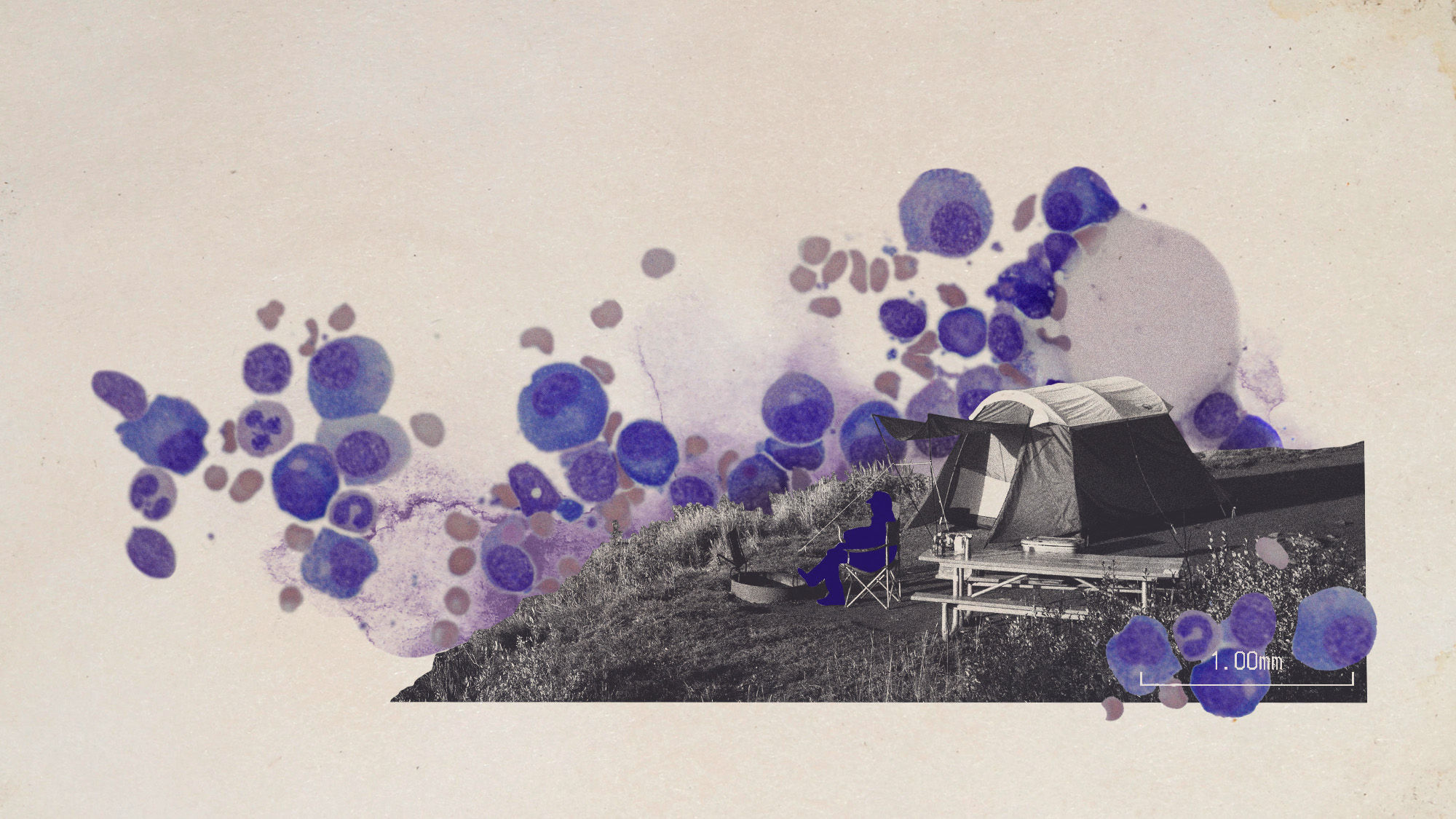 An introvert's dream? Flu camps that offer £4,400 to spend two weeks alone
An introvert's dream? Flu camps that offer £4,400 to spend two weeks aloneUnder The Radar A fortnight in isolation may not be as blissful as it sounds
-
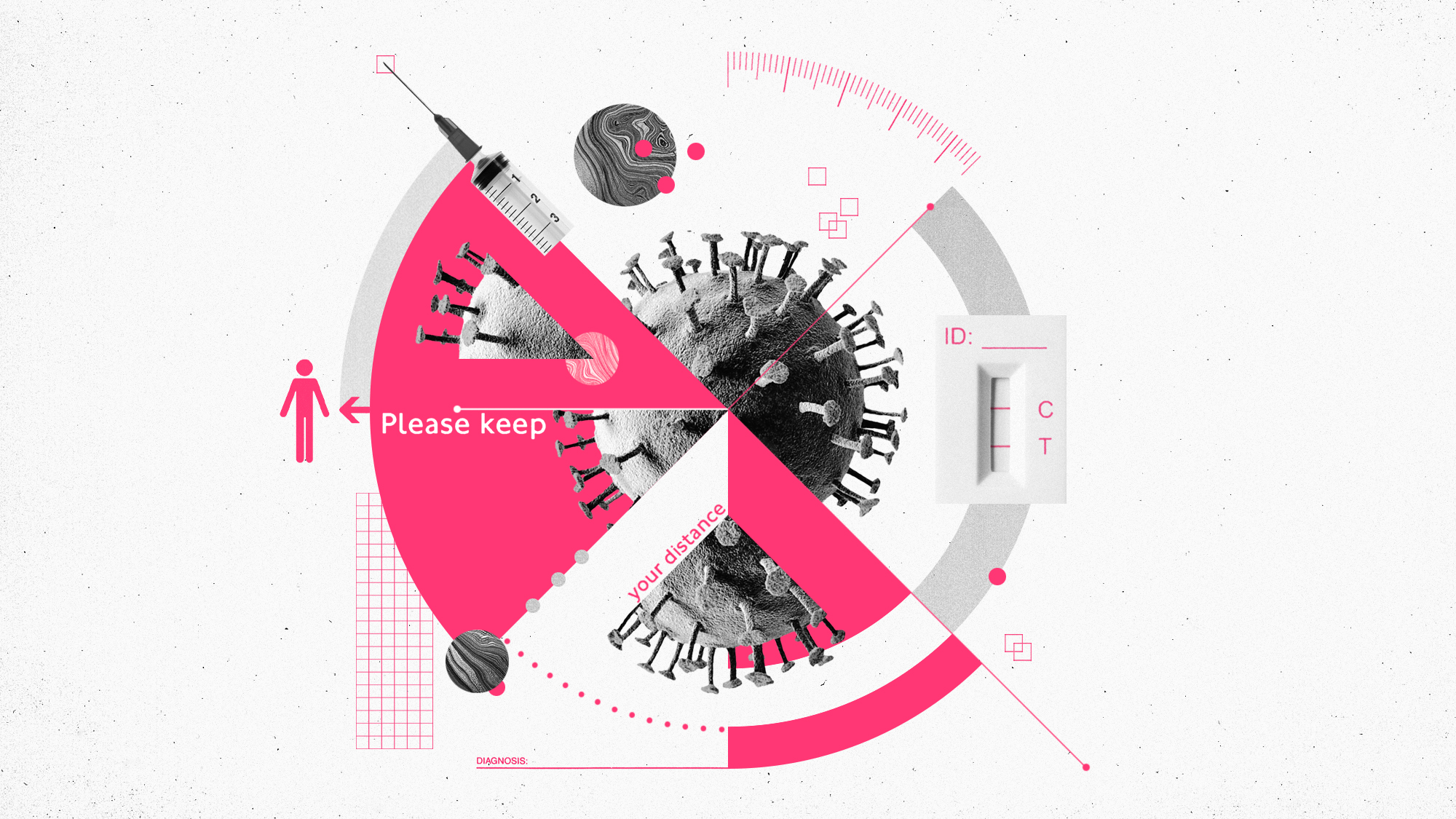 What does Covid look like in 2024?
What does Covid look like in 2024?Today's Big Question Disease experts are calling for closer monitoring as new variant fuels rise in infections
-
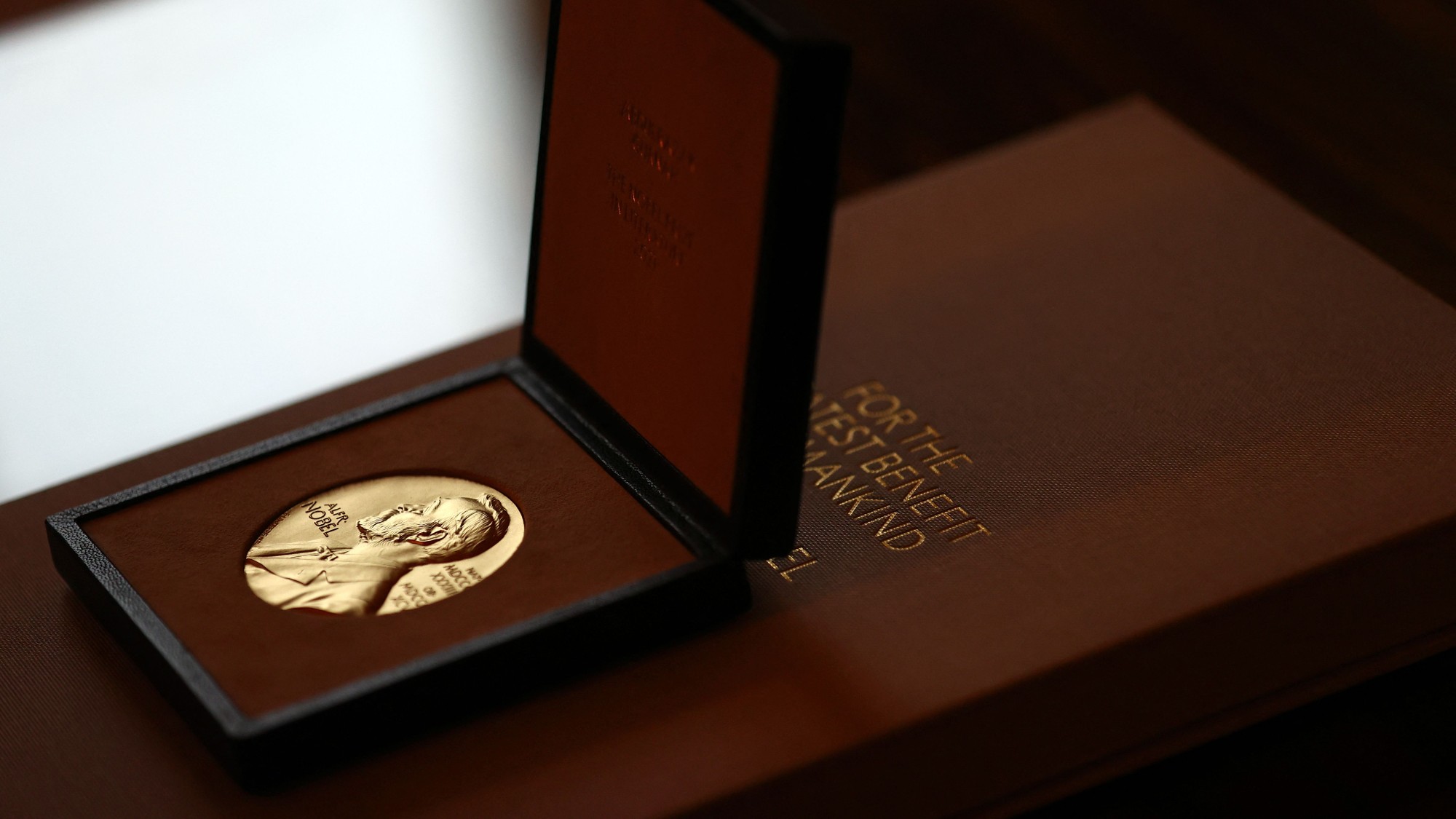 Get to know the 2023 Nobel Prize winners
Get to know the 2023 Nobel Prize winnersIn Depth A look at the men and women behind the groundbreaking work honored this year
-
 Researchers hopeful vaccines for cancer, heart disease will be ready by 2030
Researchers hopeful vaccines for cancer, heart disease will be ready by 2030Speed Read
-
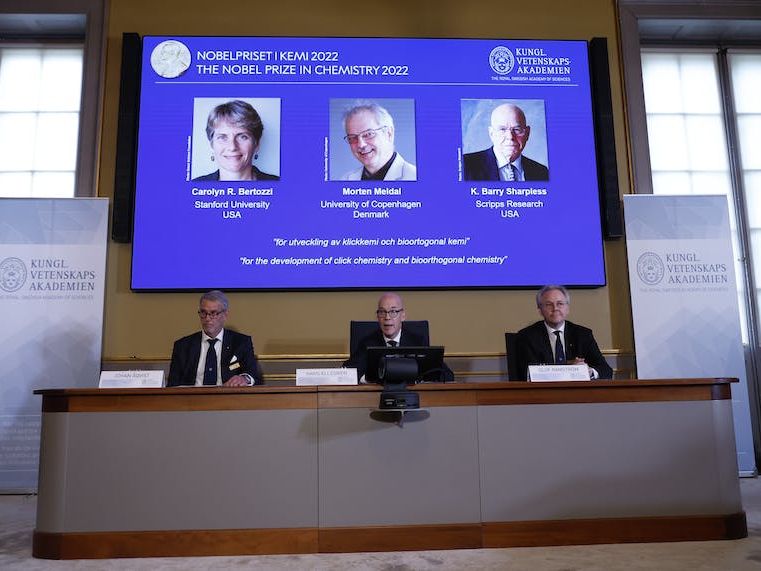 Nobel prize awarded for ‘click chemistry’ – an environmentally friendly method of building molecules
Nobel prize awarded for ‘click chemistry’ – an environmentally friendly method of building moleculesfeature 2022 Nobel prize in chemistry awarded to trio for developing click chemistry, a Lego-like method for joining molecules
-
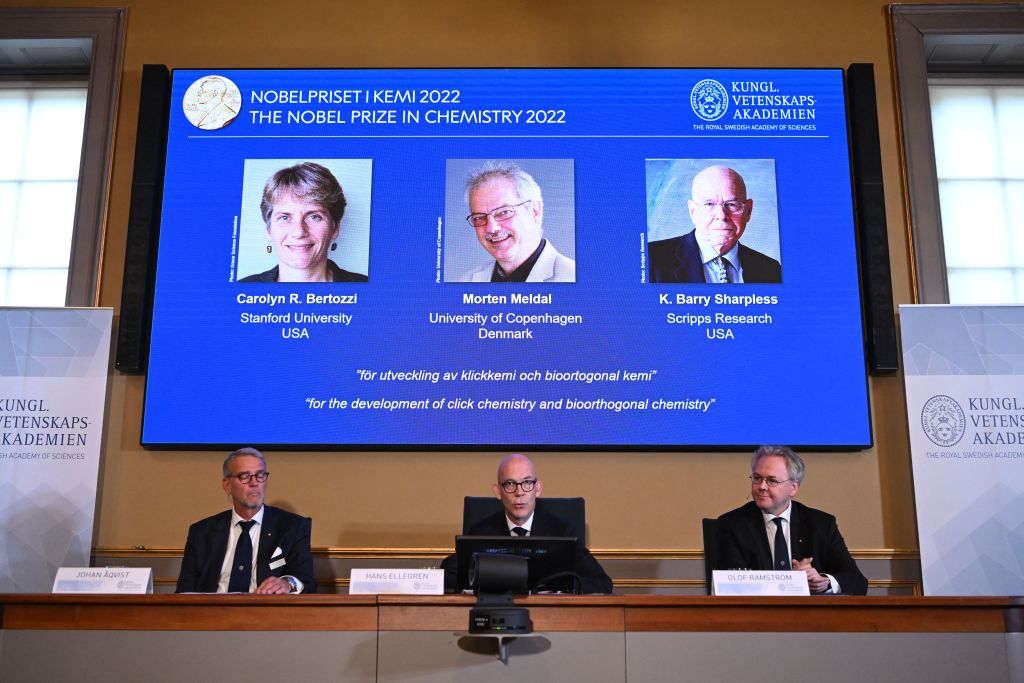 Nobel Prize in Chemistry goes to 3 scientists for work on building molecules
Nobel Prize in Chemistry goes to 3 scientists for work on building moleculesSpeed Read
-
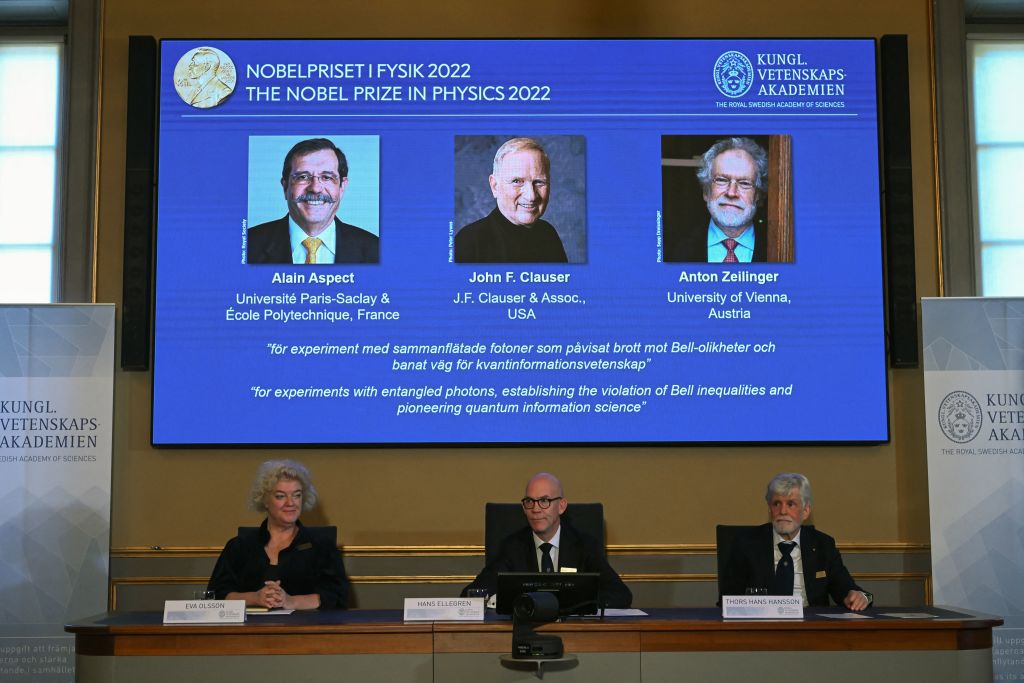 3 scientists share Nobel Prize in Physics for quantum mechanics work
3 scientists share Nobel Prize in Physics for quantum mechanics workSpeed Read
-
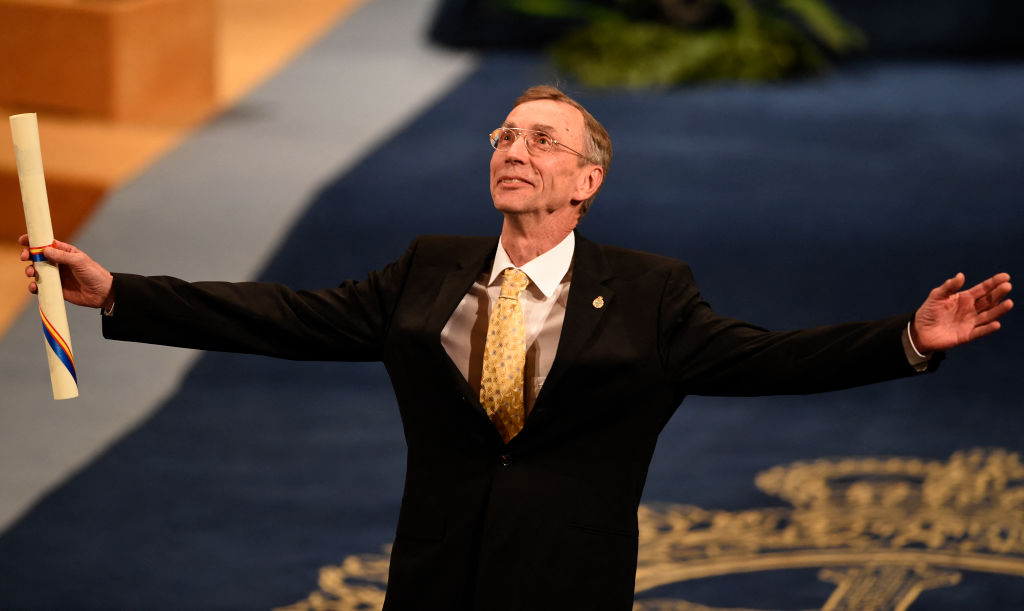 Svante Pääbo awarded Nobel Prize for work on evolution
Svante Pääbo awarded Nobel Prize for work on evolutionSpeed Read